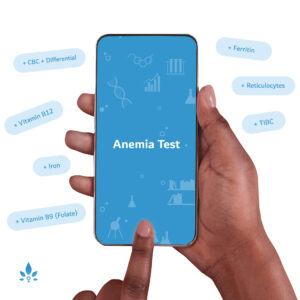Monkeypox: We Answer Your Questions


Got monkeypox questions? A rare viral infection endemic in western and central Africa has spread to the Middle East, Europe, North America, and Australia. As health experts monitor the growing outbreak of monkeypox, Nabta Health answers your most pressing questions
Am I at risk of catching monkeypox?
This is understandably one of the most common monkeypox questions. At present monkeypox infections remain rare and previous outbreaks have been quickly controlled. The World Health Organisation (WHO) describes the outbreak as atypical but ‘containable’. And senior EU health official, Dr Andrea Ammon has said, “for the broader population, the likelihood of spread is very low”.
Does monkeypox spread like Covid?
Monkeypox doesn’t spread easily by air in the same way as Covid-19. Those most at risk of catching monkeypox are travellers to endemic countries or anyone who closely interacts with an infected person, or animal, or touches a contaminated surface (for example infected bedding).
The WHO reports that the current international outbreak of monkeypox seems primarily to be spreading through sexual contact with new sexual partners. The community transmission is also mostly concentrated in urban areas.
I am pregnant, should I be concerned about monkeypox?
Children under 12 and immunocompromised people are at higher risk for more serious illness from the monkeypox infection, and monkeypox during pregnancy can cause complications or stillbirth. For this reason, high risk groups should avoid close contacts and anyone infected with monkeypox.
I have symptoms of monkeypox, should I go to the doctor?
If you have recently travelled in an endemic country in western or central Africa, or if you have had prolonged close or skin-to-skin contact with an infected person and develop signs of monkeypox, you are advised to contact your doctor or nearest health facility as soon as possible.
Symptoms can develop from 5 to 21 days from infection. Early symptoms include a headache, fever, fatigue, muscle aches, and enlarged lymph nodes. The ‘pox’ rash appears after a couple of days, first on the face, then spreading across the body. The itchy rash blisters and then crusts over. A person is infectious until the rash has completely scabbed over.
Monkeypox is usually a mild and ‘self-limited’ illness. This means that it typically lasts 2-4 weeks and the symptoms are not severe.
I may have been exposed to the monkeypox virus, should I isolate?
If you think you may have been exposed to monkeypox you should contact your healthcare provider as soon as possible and follow medical guidance.
Medical advice in countries including the UK and Belgium is for close contacts to self-isolate for 21 days.
How is monkeypox diagnosed and is there a vaccine for monkeypox?
If your doctor suspects monkeypox they may swab a lesion and send it for testing.
There is currently no licensed treatment or vaccine developed for monkeypox, but the virus can be controlled with smallpox vaccine and antivirals. According to the Centers for Disease Control and Prevention (CDC) in the US the smallpox vaccine is 85% effective in preventing monkeypox.
Following confirmation of a case of monkeypox in a person recently returned to the UAE from West Africa, the Ministry of Health and Prevention in the UAE has issued a statement saying it is “fully prepared” to handle any outbreak and has surveillance controls in place to detect the disease.













































